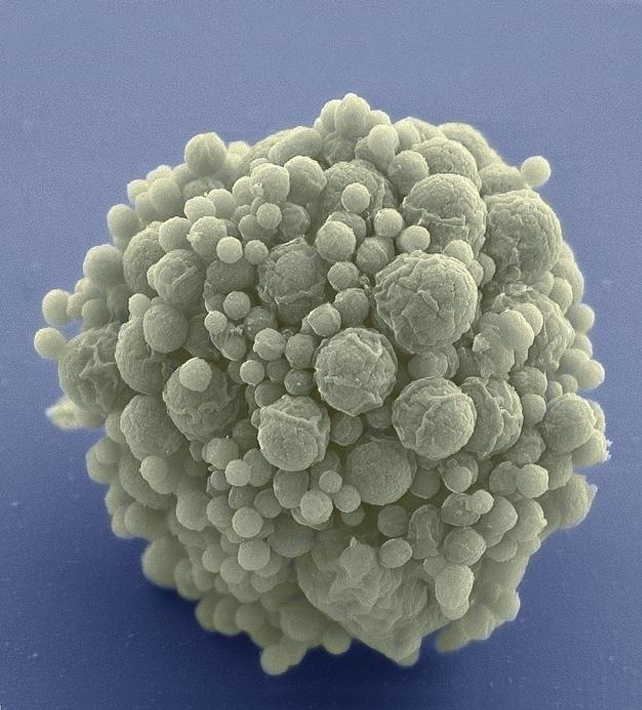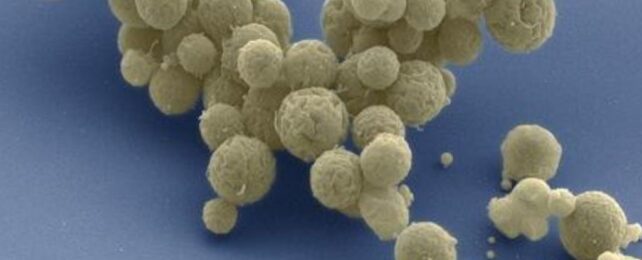Single-celled life forms need just the simplest of evolutionary footholds to get a leg up in their environment.
Even an extremely minimal cell that contains just 493 genes can mutate and adapt to improve its fitness, researchers say – a critical step in the persistence and stability of life that has now been demonstrated in the laboratory.
The insights come from a new study by a team of researchers from the US and Brazil, which stripped a cell of all but its essential genes to see if it could still evolve.
The cell is an artificially streamlined version of Mycoplasma mycoides – a parasitic bacterium found in the guts of goats and other ruminants.
Over time, as this parasite came to rely on its host for survival, it lost many of its original genes.
Today, it has a mere 901 left to its genome, which is tiny compared to the thousands of genes that encode proteins in many other bacterial species, or even the tens of thousands found in plants and animals.
When scientists synthetically eliminated a further 41 percent of M. mycoides' genes, leaving all but the most essential sequences, they created a free-living cell with the smallest genome of any organism grown in pure culture.

According to biologist Jay Lennon of Indiana University, the edited bacterium – named M. mycoides JCVI-syn3B – represents the bare bones of what is needed for a cell to survive.
"One could hypothesize that there is no wiggle room for mutations," says Lennon, "which could constrain its potential to evolve."
But even this skeleton is capable of more than you would think.
"We can simplify [the cell] down to just the bare essentials," explains Lennon, "but that doesn't stop evolution from going to work."
When Lennon and his colleagues allowed M. mycoides JCVI-syn3B to grow in the lab for 300 days (equivalent to 2,000 bacterial generations), they found an exceptionally high mutation rate for such a simple cell.
Compared to the original M. mycoides, this new strain evolved 39 percent faster, regaining all the fitness it had lost when researchers artificially removed many of its genes.
When placed in the same test tube as other minimal cells that hadn't evolved for 300 days, the evolved cells outcompeted the others, taking over and becoming the more dominant strain. It was clearly better suited to its environment.
"Our findings demonstrate that natural selection can rapidly increase the fitness of one of the simplest autonomously growing organisms," Lennon and his colleagues write.
Theoretically, the larger a cell is, the more complexity it can contain. Surprisingly, the evolved cells did not grow in physical size. The researchers suspect this is because half of its membrane proteins were removed, meaning that the cell lacked the resources to expand its volume.
While there are still many nuances left to research, including which genes evolved and why, the findings suggest that natural selection is powerful enough to optimize even the simplest of single-celled organisms.
"In other words," the authors conclude, "it shows that life finds a way."
The study was published in Nature.
